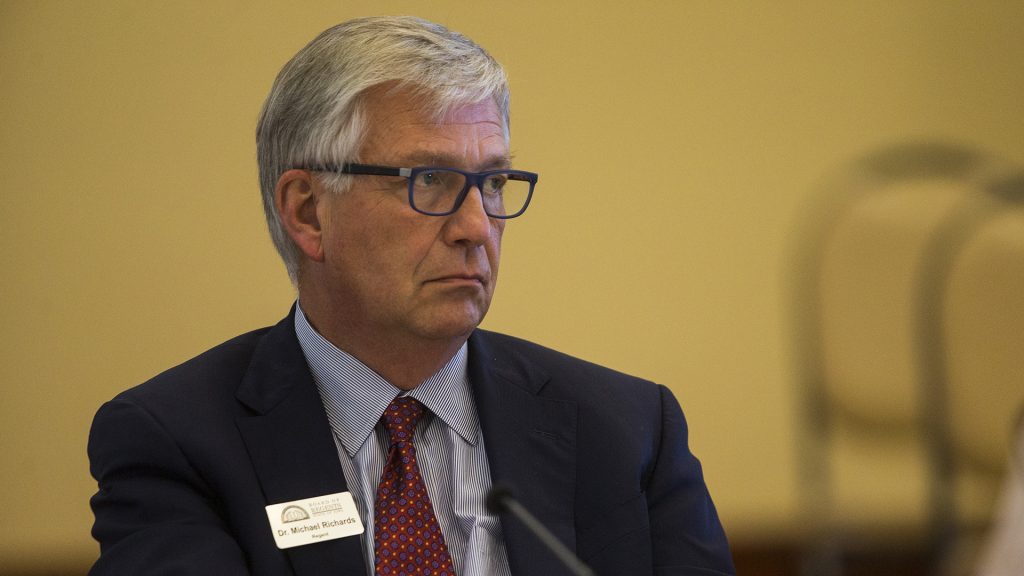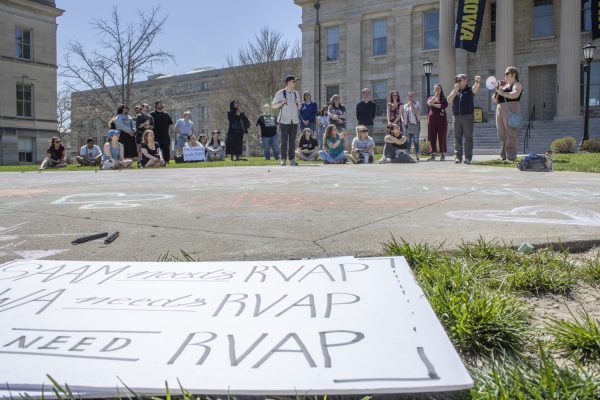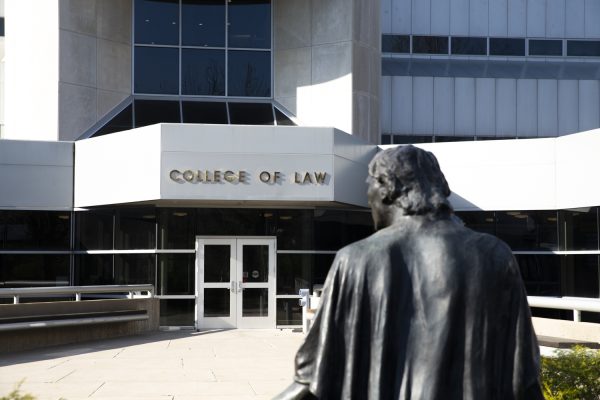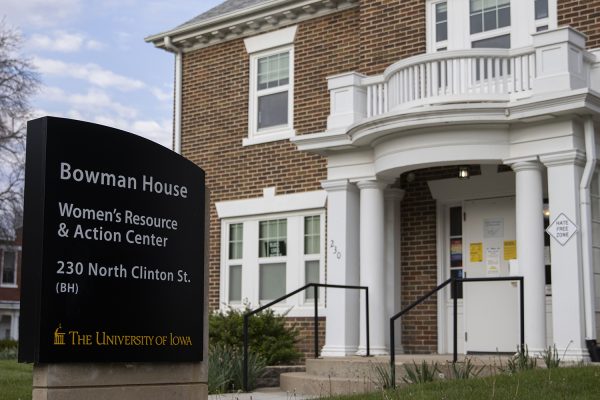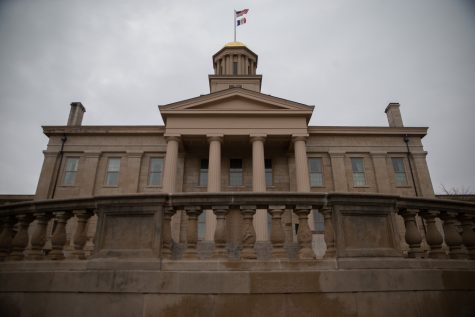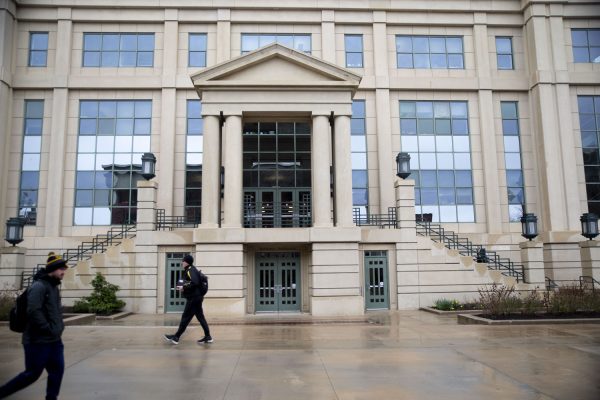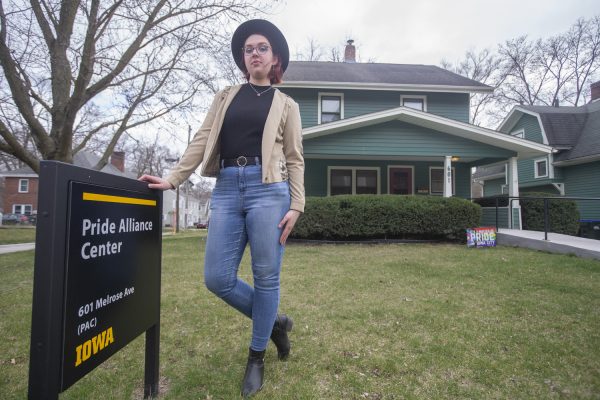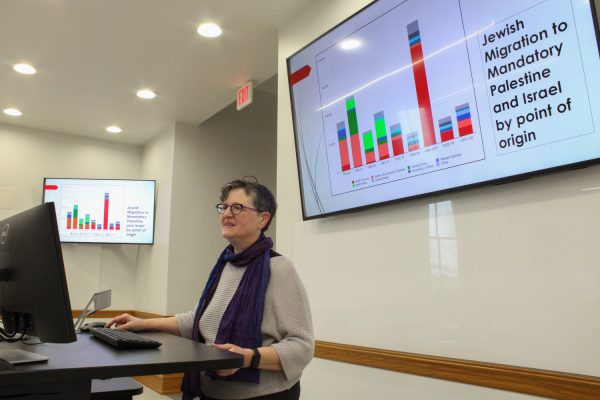Iowa’s public universities struggle to achieve predictability with tuition
Regent Michael Richards listens to a presentation during a meeting in the Reiman Ballroom of the ISU Alumni Center in Ames on Wednesday, Feb. 22, 2017. The Board of Regents will have a full board meeting on Thursday, Feb. 23. (The Daily Iowan/Joseph Cress)
January 23, 2018
If Iowa’s public universities are unable to provide predictability in setting tuition rates, students suggest, the institutions should set their sights on being transparent about the realities of funding.
With potential midyear budget cuts looming and the vote on tuition rates for the 2018-19 academic year delayed, the financial-aid offices across the three universities governed by the regents — the University of Iowa, Iowa State University, and the University of Northern Iowa — have to prepare initial financial-aid award packages without knowing where tuition is set for the following academic year.
Assistant Provost Kathy Bialk, the UI director of financial aid, said in an email to The Daily Iowan that to prepare 2018-19 academic year financial-aid packages, tuition and fees were estimated with an increase of 4 percent for resident students and 3 percent for nonresidents. Tuition and fees are estimated to total $9,273.50 for residents and $31,491.50 for nonresidents.
“All three regent universities are using these estimated tuition-increase percentages for purposes of determining students’ financial aid eligibility,” Bialk said. “Students will be notified if there are any necessary financial-aid award revisions once the 2018-19 rates are approved by the Iowa Board of Regents.”
The regents organized a Tuition Task Force, which involved university officials, regents, students, state legislators, and the public during the summer of 2017 to come up with solutions to the problem of lagging state support, with the ultimate goal being to achieve predictability so student and families can better plan for their educational expenses.
RELATED: Financial aid’s role in offsetting rising tuition concerns some UI students
For two consecutive summers, the regents voted to hike tuition above the rates approved in December, which is when the regents typically take the final vote on tuition rates.
Regent President Mike Richards has said that the regents would only vote on tuition rates once.
Despite the intention to improve the timetable of setting tuition rates, the first reading is scheduled for the regents’ February meeting, and the final vote is not set to take place until June.
Tristan Schmidt, the UI Student Government director of academic affairs, said education about students’ financial-aid options and providing students with a knowledge of financial literacy is important given the cost of higher education.
“There’s just a part of that financial aspect that you don’t comprehend until you’re fully there, and it just becomes such a big pressure for the rest of your life,” he said. “I don’t think any student should have to deal with that.”
Schmidt also stressed the importance of the institution communicating the potential for rising tuition on students and discussing initiatives that will “help alleviate some of the pressure that comes from those increases [and] will create innovative solutions that help students.”
The DI previously reported that former UISG President Rachel Zuckerman emailed the Tuition Task Force urging for transparency and consistency from the regents and institutions to allow for students and families to plan for the full cost of a degree.
“It is dishonest to say that the University of Iowa has the lowest resident tuition in the Big Ten if our leaders are actively pursuing a strategy that brings tuition to the median of that peer group,” Zuckerman said.
Decline in state funding pushes Regents to increase tuition, UI tuition remains among lowest in the Big Ten: https://t.co/QxpPmzZZUa pic.twitter.com/2KUIswNABi
— University of Iowa (@uiowa) June 8, 2017
However, in discussions about the UI’s peer institutions and cost, UI President Bruce Harreld previously told the DI it seems people have lost perspective on the dynamic between quality and price.
“We have a set of choices: who do we want to be, who do we want to aspire to, and I think this institution has a long history of aspiring to be the best of the best. I think Iowans deserve an institution in their state where they can go at state tuition and be really, really world class,” he said. “The question is how do we sustain that, and I don’t think it’s just that we say we’re cheap. If it’s really cheap that we’re after, there are wonderful institutions that are all over the place that are cheaper than we are still, and community colleges are cheaper.”



